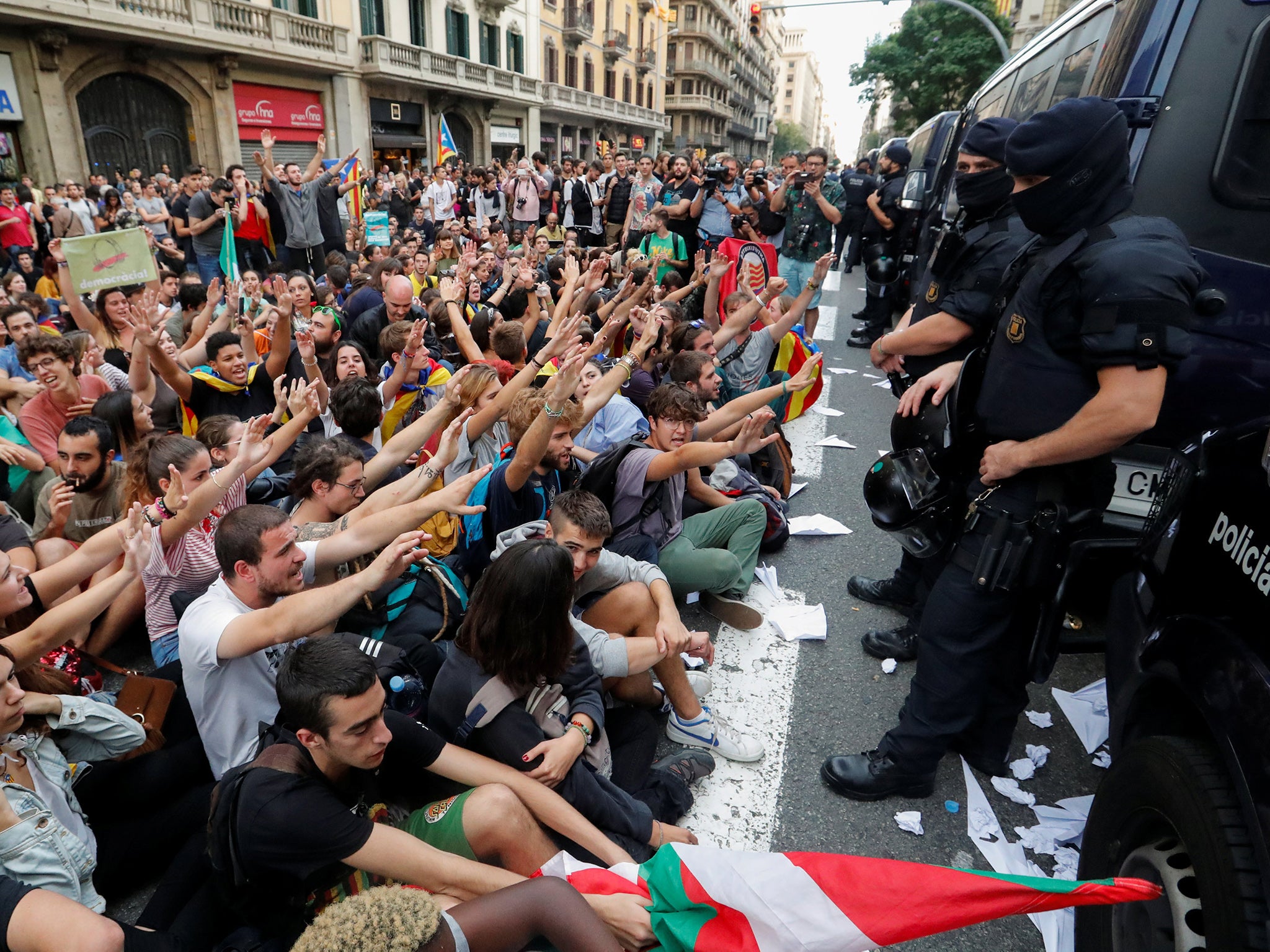This is why the left can’t bring themselves to back Catalan independence
Remember the European leftists who opposed the disintegration of Yugoslavia as the result of a dark German-Vatican plot? Now with Catalonia, as with Scotland, separation is deemed acceptable


One of the reliable signs of political opportunism is what, in parallel with particle physics, one may call political correlationism.
Let’s say me and my enemy both hold in our hands a ball, which can be either white or black, and neither of us knows its colour. I am also not allowed to look into my own folded palm, so we have here four possibilities: white-white, black-black, black-white, and white-black. Now let’s suppose that for some reason, we both know that the two balls (the one in my hand and in the one in my enemy’s hand) are opposite in colour – in this case, there are only two possibilities (black-white and white-black). And, if by some luck, I get to know the colour of the ball in the hand of my enemy’s hands, I automatically know the colour of mine – as the two balls are correlated. (This happen when particles are split and heir spins remain correlated – if I measure the spin of one particle, I know automatically the spin of the other.)
Something similar often happens (and happened) in (mostly Leftist) politics. I am not sure which position we should take in a particular political struggle, but when we learn the position of our enemy, we automatically assume that our position should be the opposite one. One should add that Lenin provided a scathing critique of this stance (ironically, his target was Rosa Luxembourg). Such was the case in the cultural Cold War when, in late 1940s, Western culture was perceived as promoting Universalist cosmopolitanism (under Jewish influence), pro-Soviet Communists (from USSR to France) decided to turn patriotic, promoting their own cultural tradition and attacking imperialism for destroying it.
Is not something similar going on in the reaction to Catalan referendum? Remember how Putin proclaimed the disintegration of the Soviet Union a mega-catastrophe? Now he supports Catalan independence. The same holds for all those European leftists who opposed the disintegration of Yugoslavia as the result of a dark German-Vatican plot. Now, as with Scotland, separation is deemed acceptable.

And the Western centrist liberals are no better: always ready to support any separated movement which threatens the geopolitical power of Russia, they now warn against the threat to the unity of Spain (while hypocritically deploring the police violence against Catalonian voters, of course).
In Slovenia, my own country, this confusion reached its peak: the old Left which was to the end mostly against Slovene independence, pleading for a renewed, more open Yugoslavia, is now organising petitions and demonstrations for Catalonia, while the nationalist Right which fought for full Slovene independence is now discreetly for the unity of Spain (since their conservative colleague Mariano Rajoy is the Spanish PM).
We can only say: shame on the European establishment – obviously, some have the right to sovereignty and others not, depending on geopolitical interests…

One argument against Catalan independence nonetheless seems rational: is Putin’s support of Catalonian independence not obviously part of his strategy to strengthen Russia by way of working for the disintegration of the European unity? Should then partisans of a strong united Europe not advocate for the unity of Spain?
Here, one should dare to turn this argument round. The support of the unity of Spain is also part of the ongoing thrive to assert the power of nation states against European unity. What we need to accommodate new local sovereignties (of Catalonia, of Scotland, and so on) is simply a stronger European Union – nation states should accustom themselves to more modest roles as intermediators between regional autonomies and a united Europe. In this way, Europe can avoid the debilitating conflicts between states and emerge as a much stronger international agent, on par with other big geopolitical blocks.
Join our commenting forum
Join thought-provoking conversations, follow other Independent readers and see their replies
Comments
Bookmark popover
Removed from bookmarks